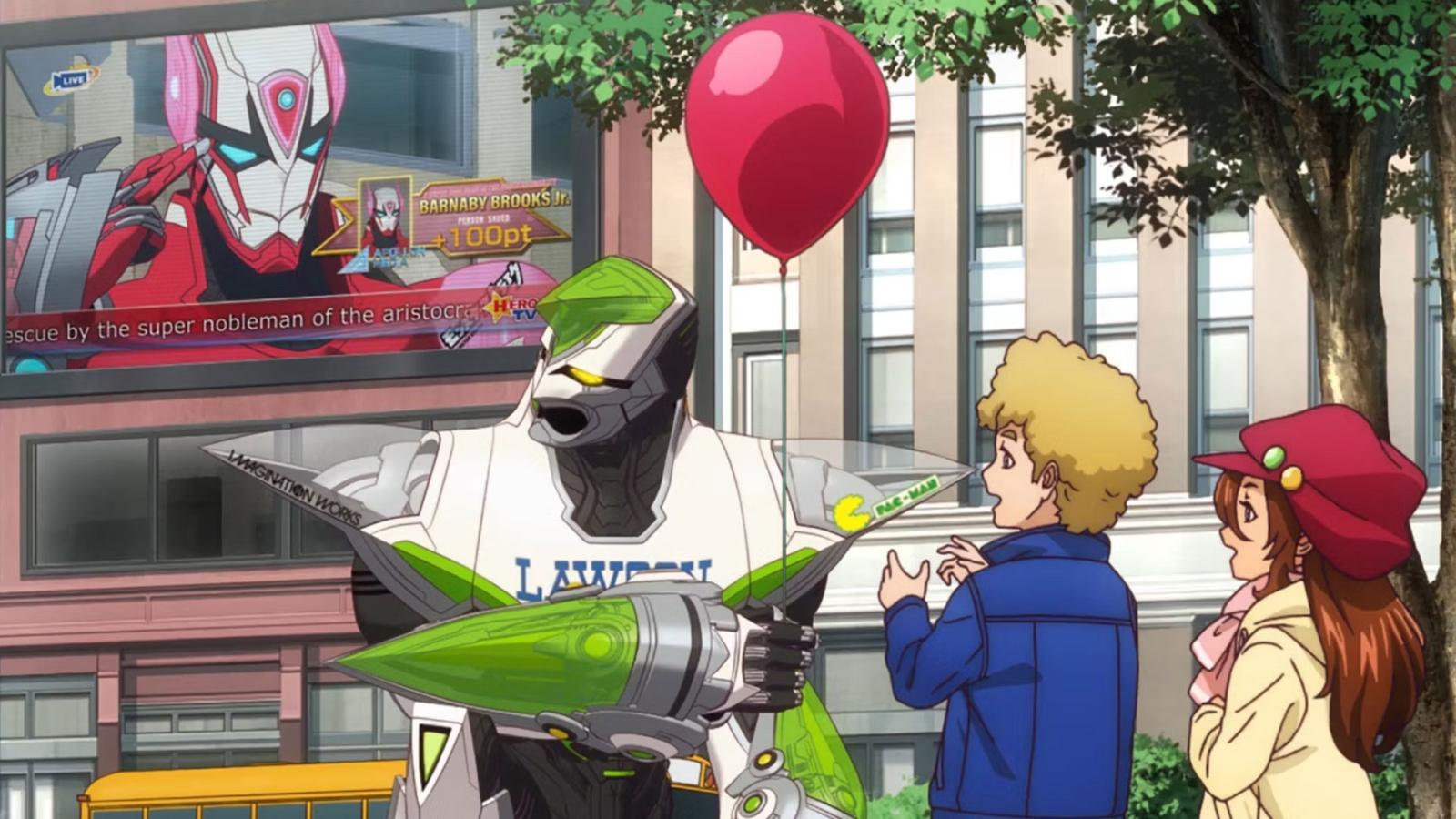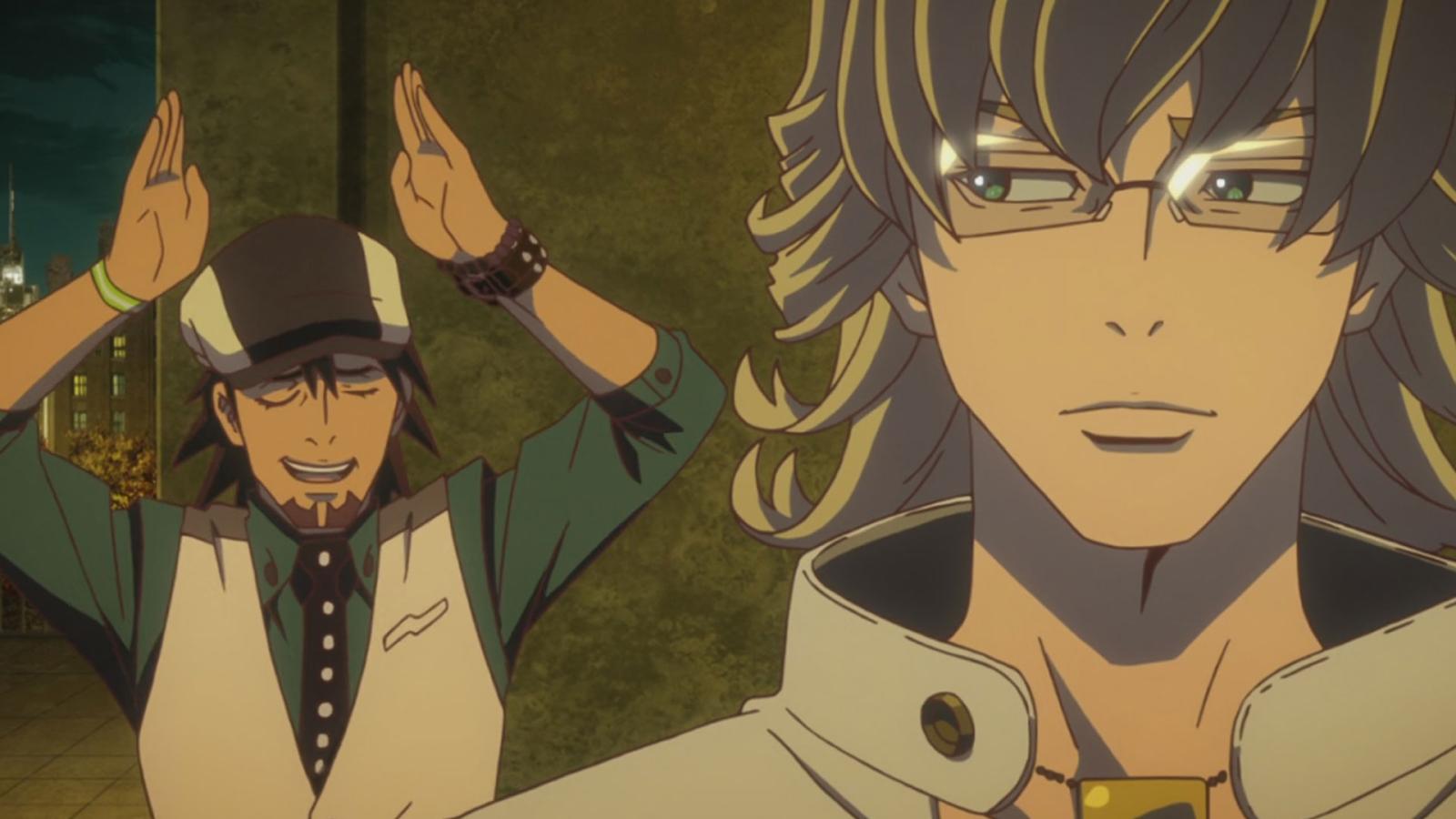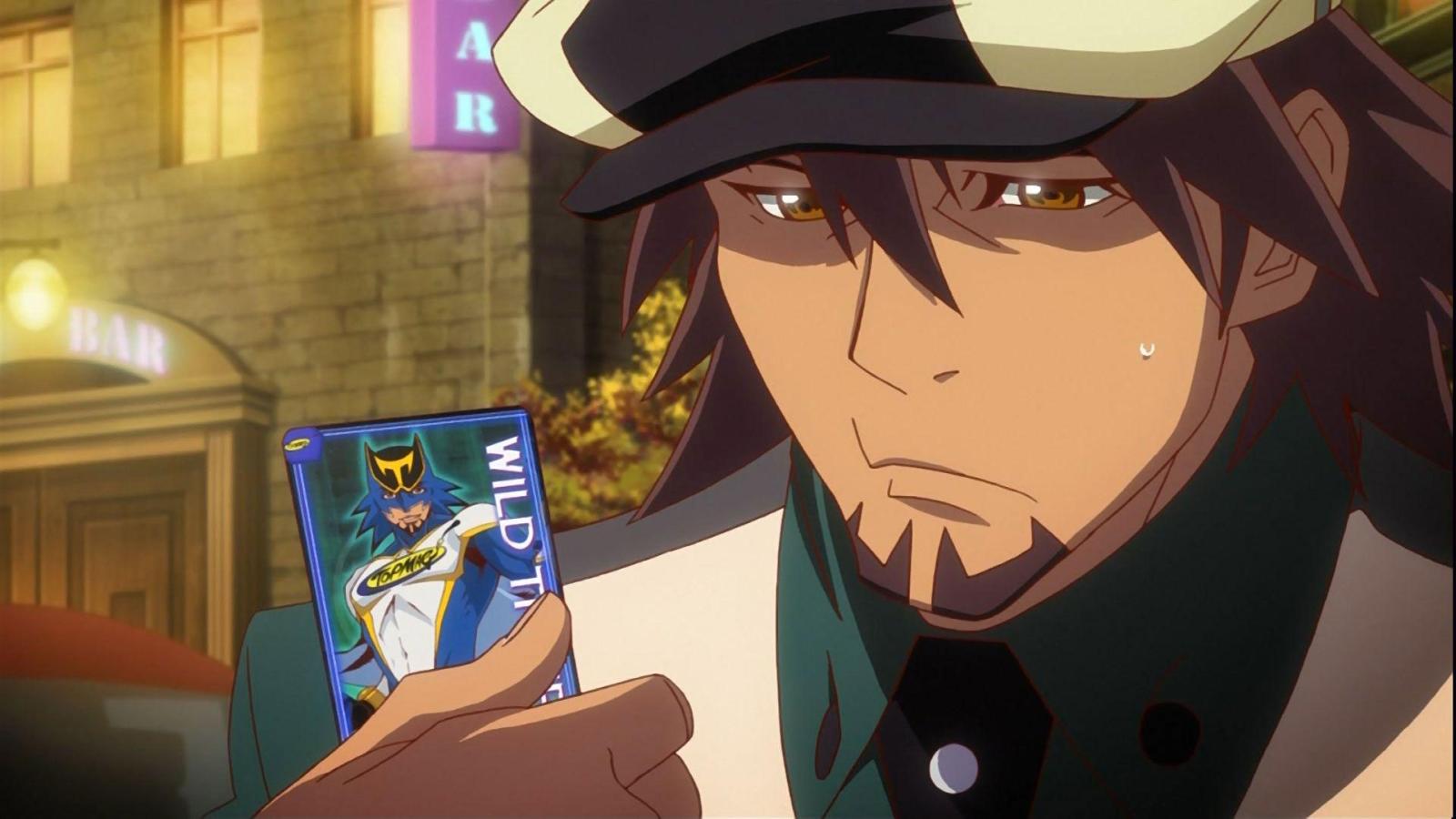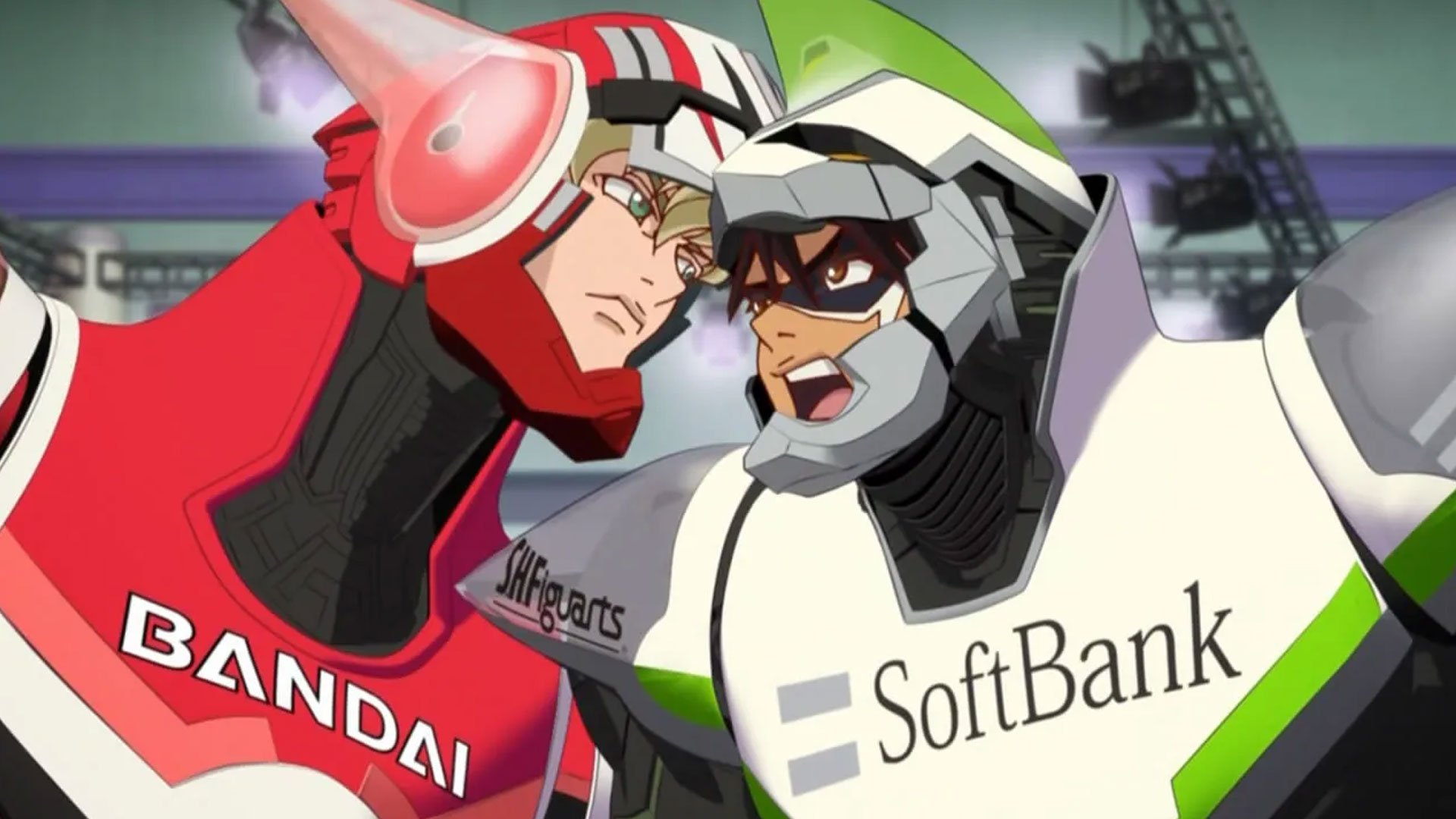Add some money to the picture and you're all set.
Summary:
- Tiger & Bunny was released when the superhero genre across all media wasn't yet oversaturated.
- The show is filled with tropes but adds an important aspect that elevates it among simpler stories: capitalism.
- The world-building and character-driven nature of the show pair greatly with the commercialization of superheroes.
- It cannot be considered a proper deconstruction of the genre, but it became a classic through the smart usage of the grounding aspect of the hero being a job.
- Nothing can be more American than capitalism — and the show, built on the tropes from US superhero stories, uses this aspect to the fullest.
Imagine: the year is 2011. Marvel's Cinematic Universe is on its way to its first culmination, Avengers, hyping up the huge crossover event for superhero comic lovers all over the world. One Punch Man still lives only in the web-comic form and hasn't been adapted into manga yet. My Hero Academia will debut three years later.
In the anime scene, the majority of the titular titles focusing on superheroes were made way before, earlier than 2003, with two exceptions being Tentai Senshi Sunred released in 2009 and Heroman released in 2010. The latter one even roped Stan Lee as one of the writers, but still focused on a pretty straightforward and simple story about a kid who got himself a superpowered toy. The former, however, gets a bit more interesting, as it shows the life of the retired superhero who gets harassed through the cooking shows. But neither of these shows got that much attention: Heroman was too bland, and Tentai Senshi Sunred was too niche with its satirical approach to the genre and specific art style.
Money is the greatest antagonist
But in 2011 Sunrise and Bandai Namco released an original anime called Tiger & Bunny, one that now can be called "a watered-down version of The Boys", but back then was super fresh and explored the superhero genre from the angle that wasn't yet presented in the Japanese entertainment: it added commercialization to the pot of tropes.
It has a colorful cast of superheroes with various abilities, ranging from super-strength to elemental powers to shapeshifting, and weekly baddies that let the heroes showcase their whole repertoire of gimmicks. It has an overarching plot, one that gradually gets serious and ups the tension, seemingly resolving one of the main mysteries mid-season, but then circling all the way back in a painful plot twist.
Carefully built background

People with special abilities in the world of Tiger & Bunny exist all over the world, but our heroes live in the city of Stern Bild, an alternate version of New York in 1978. It's a carefully crafted lore that has nods both to retro-futurism and cyberpunk, but the cyberpunk-ish vibe is severely downplayed. Not every person who has a mutation that gives them an ability becomes a hero: they have to go through the training. Not every person in the world has them; it's a mutation that was first encountered 45 years before the events of the show, and it seems random.
But heroes are not just people who save others; they're employed by the companies. They have to deal with the sponsorships, they need to please the advertisers, they need to attract viewers to their widely televised adventures. And that additional layer of commercialization ties the world of Tiger & Bunny with whatever happens in our lives. It grounds the characters, this corporate greed that they battle against to fulfill their heroic beliefs.
Characters shine, not just their abilities

This show carefully infuses the superhero genre with a buddy-cop dynamic, forcing two very relatable, very flawed, and very different (but actually not that much) characters to grow together, their ideas of justice sometimes overlapping and clashing. And they're adults: Kotetsu — Tiger — is 35 and even has a kid, Barnaby — Bunny — is 23.
Almost every character is an adult, safe from two in the main team, but the troubles each of them goes through are painfully relatable. Are you trying to find your place in this ever-changing world? Do you want to know whether you should stand up for yourself and pursue your dream, or you should just accept what's more doable? Are you battling imposter syndrome? Are you struggling with finding your identity and building proper bonds with your family? This show got you covered.
It's character-driven, first and foremost, and the addition of the commercialization aspect, where heroes become walking advertisements for the brands sponsoring them, and their success in the missions brings in money both for the network that employs them and the companies that pour gold into them, creates a staggering contrast between their pure beliefs and the need to please the moneybags.
Deep dive into societal issues

They're advertising not only the companies, however; they are used to change the public's opinion of those who have these superpowers. The owners of these abilities are ostracized, people are cautious around them, and the good deeds help sway the mood of the general audience — it's more thoroughly explored in the second season that was released in 2022, but some seeds were planted in the first one.
This show cannot be considered a proper deconstruction of the genre, but the addition of this societal aspect gives a lot of extra depth to a seemingly simple story filled with tried and true tropes. The pacing allows it to show the world-building without boring infodumps, creating a believable lore in which the heroes fit perfectly, their motivations and character development shining on top of the colorful background of retro-futuristic Stern Bild.
Tiger & Bunny was made in a very weird time for Japanese animation: the market was shrinking, and the attempt to adapt the American type of story that would be interesting to a wide variety of audiences, not only for the local market, paid off. What can be more American than the inclusion of capitalistic greed, after all?

